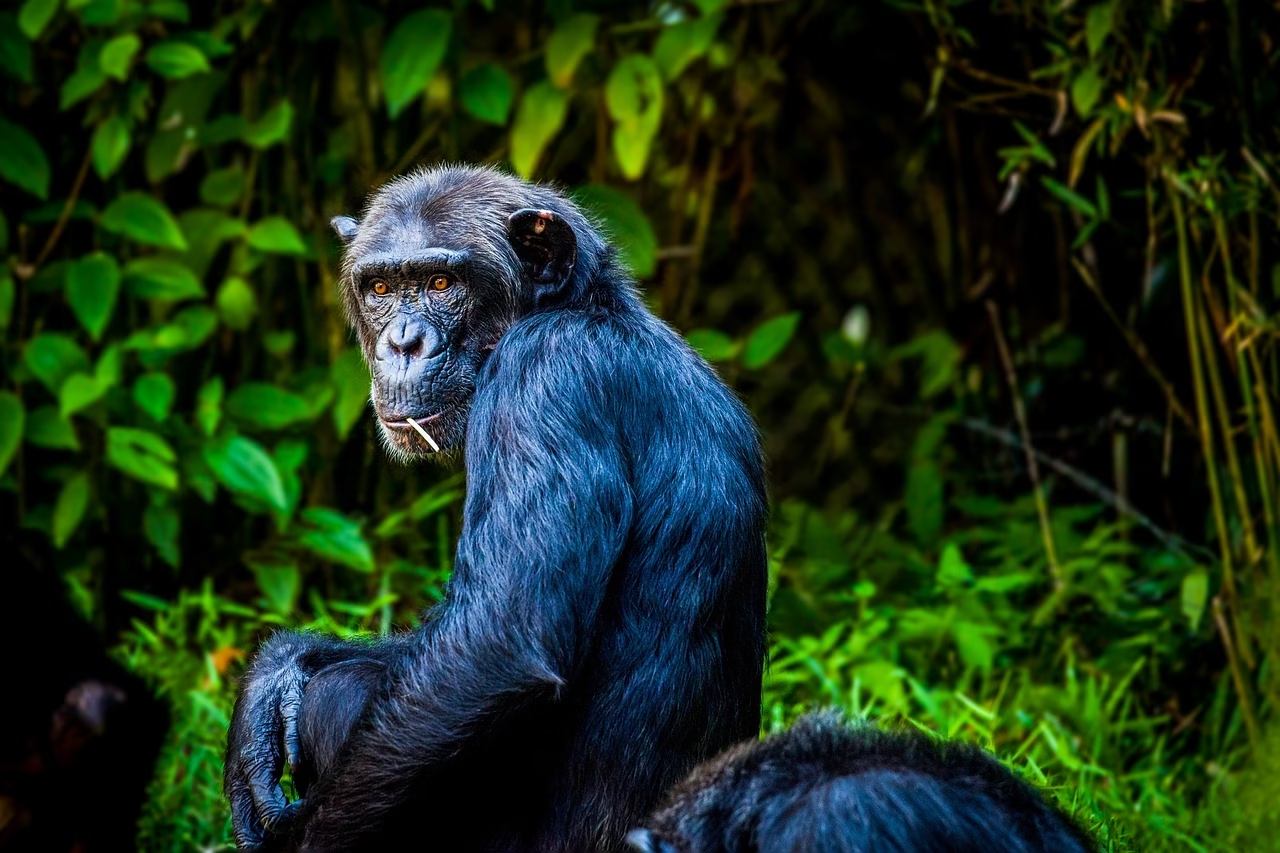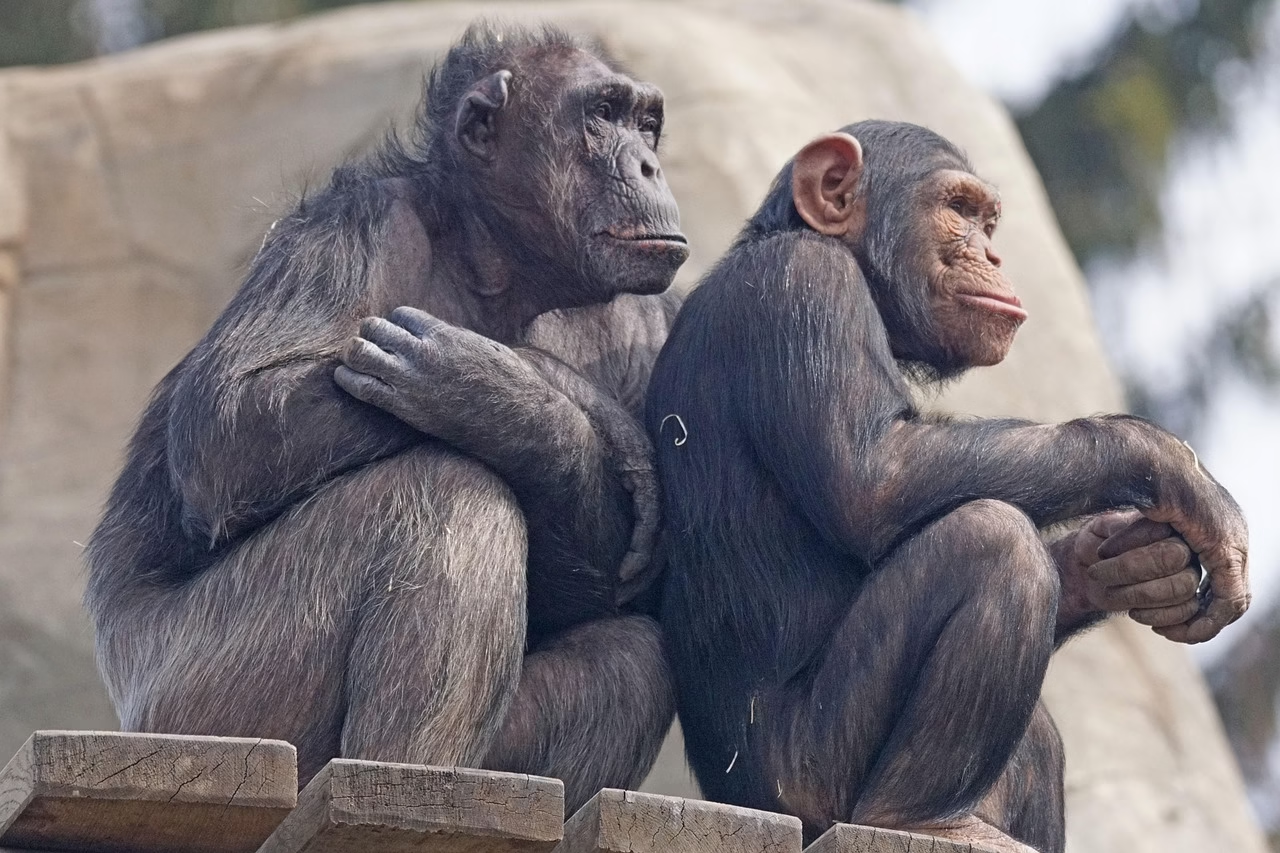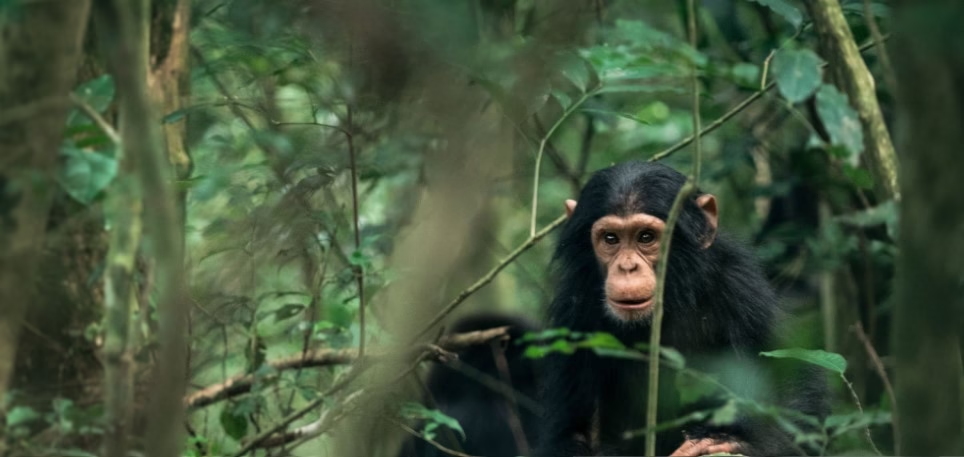
10 Fascinating Facts About Chimpanzee
10 Fascinating Facts About Chimpanzees: Nature’s Most Intelligent Cousins
There is something deeply moving about looking into the eyes of a chimpanzee. It’s like gazing into a mirror that reflects not just a distant cousin of our species, but a wild soul full of emotion, intellect and connection. In the dense rainforests of Africa, chimpanzees live complex, emotional lives that remind us just how closely we are tied to the natural world. Observing them is not just a wildlife experience. It’s an encounter with a living story of evolution, survival and extraordinary intelligence.
Let’s journey into the world of these remarkable creatures and uncover 10 fascinating facts about chimpanzees that will deepen your appreciation for our wild relatives.
1. Chimpanzees Share 98.7% of Human DNA
Chimpanzees are our closest living relatives, sharing almost 99% of our DNA. This genetic closeness is not just a number. It explains why chimps exhibit emotions like joy, sorrow, empathy and even jealousy. They can solve puzzles, use tools and display long-term memory. Their likeness to us in behavior, emotion and cognition is so profound that spending time with chimpanzees often feels like connecting with a primitive version of ourselves.
2. Chimpanzees Have a Varied and Clever Diet
Chimpanzee feeding habits are incredibly diverse and intelligent. They are omnivores, feeding on fruits, seeds, leaves, flowers and insects. Occasionally, they even hunt smaller mammals like monkeys. What makes their feeding behavior truly fascinating is their use of tools. Chimpanzees use sticks to extract termites from mounds, stones to crack nuts and leaves as sponges to drink water. These activities are passed down through generations, showing a level of cultural learning previously thought unique to humans.
3. They Live in Complex Social Communities
Chimpanzees live in tight-knit communities called troops, which can consist of 20 to over 100 individuals. Within these societies, relationships are built on trust, hierarchy and cooperation. Alpha males often rise to power not just through strength but through forming alliances. Grooming is a vital part of their social life, helping build bonds and reduce tension. Every chimpanzee has a place in the social structure, and they interact with others using a rich set of behaviors that reflect intelligence and emotion.
4. Communication Goes Beyond Sound
Chimpanzee communication is a blend of vocalizations, facial expressions, body language and gestures. They use specific calls to warn of danger, signal food sources or call for help. A “pant-hoot” can express excitement, while a submissive grin can calm potential aggression. Their gestures, like extending a hand for reassurance or begging, are strikingly human. Some researchers have even taught chimpanzees sign language, revealing their capacity for understanding abstract symbols.
5. Mating Rituals Are Intricate and Emotional
Chimpanzee mating involves more than just reproduction. Females signal readiness to mate through visible physical changes, and males often compete for their attention. What’s unique is that chimpanzees don’t mate for life. Instead, females may mate with multiple males, which helps maintain social peace by confusing paternity. Despite the competition, there is tenderness too. Grooming and affection play a role in strengthening bonds between partners before and after mating.
6. They Experience Deep Emotions and Mourning
One of the most profound aspects of chimpanzee life is their emotional depth. They laugh during play, embrace in reconciliation, and show sorrow when a troop member dies. Mothers carry their dead infants for days, a behavior interpreted by scientists as mourning. Chimps comfort each other in times of stress, indicating an empathetic nature that resonates deeply with human emotions. These shared feelings reveal the emotional bridge that connects us with them.
7. The Human-Chimpanzee Relationship Is Both Beautiful and Tragic
Humans have had a long and complex relationship with chimpanzees. In the wild, chimpanzees have inspired awe, study and conservation. In sanctuaries, they are rescued from illegal trade, entertainment and pet industries. Sadly, habitat loss, poaching and diseases continue to threaten their survival. Yet, our bond with them has led to global efforts to protect their future. Conservationists and primatologists dedicate their lives to studying and preserving chimpanzee populations, ensuring that these intelligent beings continue to thrive in their natural habitats.
8. They Are Found Across Central and West Africa
Chimpanzees are native to the tropical forests and savannas of central and western Africa. Countries like Uganda, Tanzania, Congo, Gabon and Cameroon are home to significant populations. In Uganda’s Kibale National Park and Budongo Forest, visitors can track chimpanzees in their natural habitat, witnessing firsthand their rich behaviors and forest life. Despite their adaptability, their habitats are shrinking fast due to deforestation and human encroachment, making conservation efforts more critical than ever.
9. Chimpanzee Young Learn Like Human Children
Chimpanzee infants are born helpless and rely on their mothers for several years. They are nurtured, carried and taught vital survival skills. Just like human children, young chimps learn through observation, imitation and play. They gradually acquire tool use, foraging techniques and social behaviors from their mothers and older siblings. This learning process builds a generational culture, proving that chimpanzees pass down knowledge much like human societies.
10. Chimpanzees Are Endangered But There Is Hope

According to the IUCN Red List, chimpanzees are classified as endangered, with an estimated population decline of over 50% in the past 60 years. The threats include habitat destruction, bushmeat hunting, illegal pet trade and disease transmission from humans. But there is hope. Organizations around the world are working to protect them through forest preservation, anti-poaching measures, education and ecotourism. When communities benefit from protecting chimpanzees, both people and wildlife thrive.
A Call to Respect and Protect
Chimpanzees are more than fascinating animals. They are our fellow earthlings, sharing our intelligence, emotions and need for social connection. Observing a chimpanzee in the wild is an invitation to reconnect with the natural world and with ourselves. It challenges us to consider our role as stewards of the planet. By protecting chimpanzees, we protect a part of what it means to be human.
Let their lives inspire yours. Let their story stir you into action. Whether through responsible tourism, conservation support or spreading awareness, each step you take can help secure a future where chimpanzees continue to roam free in the forests of Africa.


